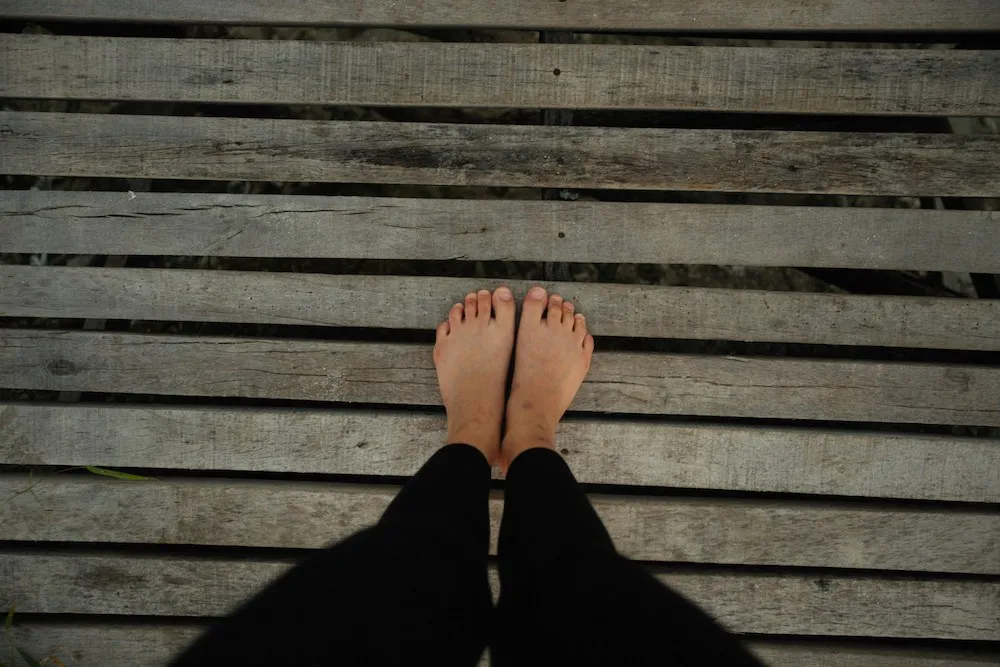



Varicose eczema, also known as venous eczema or stasis dermatitis, is a chronic skin condition most commonly affecting the lower legs. While it may start with itching and discolouration, it’s often a sign of underlying varicose veins and poor circulation. In this article, we’ll explain what varicose eczema is, how it develops, and how it can be treated effectively — by addressing the actual cause.
Varicose eczema is a type of inflammation caused by increased pressure in the leg veins, usually as a result of chronic venous insufficiency. When blood struggles to flow back up towards the heart, fluid and waste products can leak into surrounding tissues, triggering a skin reaction.
It typically affects the ankles and lower legs, where the skin may appear red, flaky, or brownish in colour. Although the symptoms resemble other types of eczema, the underlying cause is circulatory — not allergic or immune-based.
We explain this further in our article on complications of untreated varicose veins.
Common signs of varicose eczema include:
Without treatment, varicose eczema can progress to more serious conditions such as venous leg ulcers.
You can learn more in our guide to symptoms of varicose veins.
While varicose eczema appears on the skin, its root cause lies deeper — in the veins. Damaged or weakened valves in the veins lead to blood pooling, increased venous pressure, and eventually fluid leakage into the skin. This chronic pressure causes inflammation, irritation and, over time, permanent skin changes.
That’s why treating only the skin symptoms is not enough. To stop the condition from worsening, it's crucial to assess and treat the venous insufficiency underneath.
We go through this process in detail in our article on the stages of varicose veins.
Successful treatment of varicose eczema combines symptom relief with correction of the underlying vein issue.
At UK Vein Care, our vascular specialists focus on minimally invasive treatments that target the dysfunctional veins directly. Common procedures include:
These methods are often performed under local anaesthesia, with minimal downtime.
You can read more about our treatment options for varicose veins.
Many people dismiss the early signs of varicose eczema as “just dry skin” or assume it's unrelated to their veins. But by the time itching or discolouration becomes noticeable, the underlying venous problem has often been developing for years. Because varicose eczema progresses gradually and isn't always painful, it tends to go untreated until complications arise — such as open ulcers or skin infections. Recognising it as a vascular condition rather than a skin problem is the key to lasting relief. At UK Vein Care, we help patients make that connection early, so they can avoid more serious outcomes.
If you have persistent itching, skin changes or swelling in your lower legs — especially alongside visible varicose veins — it’s time to seek a proper assessment. Varicose eczema may seem mild at first but can develop into open wounds and chronic discomfort if left untreated.
You don’t need a GP referral to see us. At UK Vein Care, we welcome both self-paying and privately insured patients, with transparent pricing and interest-free payment plans. A consultation typically includes a duplex ultrasound scan and a personalised treatment plan.
Visit our page on consultations and what to expect for more information.
Varicose eczema isn’t just a skin issue. It’s your body’s way of signalling that something deeper — like impaired vein function — needs attention. By treating both the skin and the veins, you can relieve discomfort, prevent complications, and restore confidence in your legs.
Our team at UK Vein Care specialises in just that: helping you understand and address the root of the problem — not just the surface.
This article is based on research and publications from reputable sources to provide you with the most reliable information. Here are some of the main sources used:
MedlinePlus – Stasis dermatitis
https://medlineplus.gov/ency/article/000834.htmEberhardt RT, Raffetto JD – Chronic venous insufficiency
https://doi.org/10.1161/CIRCULATIONAHA.113.006898By using these sources, you can be sure that the article is based on current and scientifically reviewed information.

Become varicose vein free: We offer full treatment at a fixed and transparent price regardless of the treatment method. With us, there are no hidden fees.
Learn more about our prices

